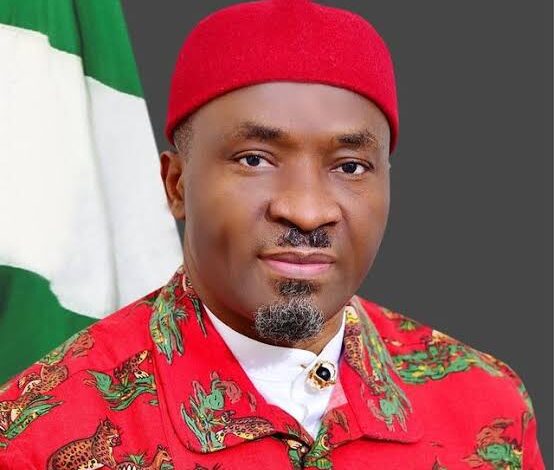
Deputy Speaker of the House of Representatives, Benjamin Kalu, has said that the South-East region is facing a severe humanitarian crisis, with over 268,000 internally displaced persons (IDPs) spread across 158 camps and affected communities.
Kalu made the revelation yesterday in Abuja while speaking at a Roundtable Discussion with International non-governmental organizations (INGOs) in a programme titled “Through Their Eyes: A Call To Action, Addressing Humanitarian Challenges In The South East. “
He said that Enugu, Imo, Abia, Anambra, and Ebonyi are the most affected, with many lacking access to clean water, adequate shelter, healthcare, and education.
Organised by the Office of the Deputy Speaker in conjunction with the Peace in South East Project (PISE-P), the roundtable discussion aims to explore avenues for deeper partnerships, engender resilience, and deliver sustainable solutions to some of the nation’s most pressing ecological issues.
The Deputy Speaker said that the crisis in the South East region is characterized by displacement, violence, and ecological challenges, including natural disasters like gully erosion that have destroyed homes and left many without shelter.
*Calls for urgent action
Kalu emphasised the need for collaborative efforts to provide immediate humanitarian relief and sustainable development solutions and called for support from international non-governmental organizations (INGOs) and government agencies to address the crisis.
He said, “A special welcome to you to this roundtable with INGOs, a convening that underscores the pivotal role of collaboration in addressing Nigeria’s humanitarian, ecological, and systemic challenges.
“Southeast geopolitical zone of Nigeria is grappling with a severe humanitarian crisis, characterized by displacement, violence, and ecological challenges.
“Report presented today underscores the grim realities: over 268,000 internally displaced persons (IDPs) are spread across 158 camps and affected communities. Enugu, Imo, Abia, Anambra, and Ebonyi bear the brunt of this crisis, with precarious living conditions leaving many without access to clean water, adequate shelter, healthcare, and education.
“Shelter, in particular, remains a pressing concern. Families who live in makeshift camps or overcrowded host communities are exposed to health risks, insecurity, and a loss of dignity.
“Natural disasters like gully erosion have destroyed homes, leaving little to return to. This crisis demands immediate intervention and sustainable strategies to restore stability and hope.”
Recognizing INGOs’ contributions, Kalu said that their work has been instrumental in addressing the challenges.
He said his office was committed to championing legislative inputs that can be paramount to the issues.
Kalu identified key thematic areas, including education, healthcare and nutrition, WASH (Water, Sanitation, and Hygiene), mental health support, gender-based violence, and shelter, that required urgent attention.
In their separate remarks, the head of INGOs in Nigeria, Camilla Higgins; the Director-General of Nigeria Hydrological Services Agency, Umar Ibrahim Mohammed; the national coordinator of National Social Investment Programme Agency, Dr Badamasi Lawal; the Director-General of National Refugees Commission and Migrants, Alhaji Aliyu Ahmed; representatives of the Directors-General of National Directorate of Employment (NDE) and National Emergency Management Agency (NEMA) who were overwhelmed by the degree of ecological challenges and human crisis in the South East region arising from a video documentary pledged their respective commitments to collaborate with the Office of the Deputy Speaker to address the menace.
However, they appealed for an increase in their budgetary allocation in 2025 to enable them to function optimally in their constitutional mandates.